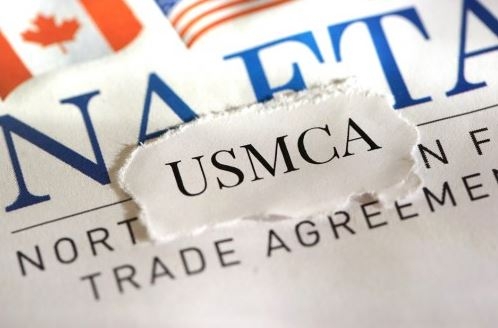A new study from the University of California School of Global Policy and Strategy says that uncertainty is bad for business. However, trade agreements can help reduce uncertainty by making countries more resilient to economic shocks.
The study, which was published in the Journal of International Economics, finds that reliable international trade agreements gave U.S. companies a good way to protect themselves against the threat of a global trade war during the 2008 financial crisis. According to the research, trade agreements would have the same effect if there was another global recession.
“There is a lot of evidence that protectionist policies like trade tariffs are a common response to economic and political shocks,” said Kyle Handley, an associate professor of economics at the School of Global Policy and Strategy and co-author of the study. “However, trade agreements tie the hands of policymakers who would otherwise put up barriers,” Handley said.
The study is the first to show that trade agreements have a direct effect on how investments are made.
It shows that between 2008 and 2009, U.S. exports fell by 22%, but not all markets were affected the same way. During the 2008 crisis, export growth to countries with which the U.S. had a preferential trade agreement, like the North American Free Trade Agreement (NAFTA), fell less and picked up more quickly. For markets that didn’t have trade agreements, the shock of 2008 was three times bigger.
“It looks like we could have another global recession in the next 12 to 18 months. We hope our research will give governments a reason to address economic uncertainty with trade agreements that can make trade relationships more resilient to downturns and speed up recoveries,” said Handley.
Trade agreements will help U.S. industries that depend on exports, like the auto industry and industries that make capital goods, like aircraft and electronic machinery and equipment like semiconductors, as long as their policy promises are kept.
The study’s findings are based on an economic model that uses data on how firms made decisions about international trade during the recession and recovery of 2008. This was a time when international trade fell and many people were afraid of a trade war.
The data also shows that businesses are more likely to invest when there are good trade agreements. During former President Donald Trump’s time in office, NAFTA was scrapped and replaced by the United States-Mexico-Canada Agreement (USMCA). However, the authors say that USMCA is less trustworthy.
“NAFTA had been in place since 1994 when the 2008 financial crisis happened,” Handley said. “But in 2018, the Trump administration said it might leave the deal and put new taxes on goods from Mexico and Canada. If the U.S. had left NAFTA, tariffs would have gone up on almost everything it imports and exports. Even though this didn’t happen after the USMCA was renegotiated, it may have hurt the credibility of U.S. trade policy promises in a future crisis.
Both the British and European markets were hurt by Brexit in the same way.
Handley and his co-authors came to the conclusion that the insurance value of trade agreements contributes to their larger effects on trade and should be taken into account when deciding whether to join or leave such agreements.
The paper was written by Jeronimo Carballo of the University of Colorado and Nuno Limo of the University of Maryland. It was called “Economic and Policy Uncertainty: Aggregate Export Dynamics and the Value of Agreements.”
